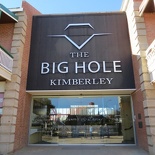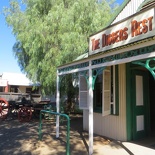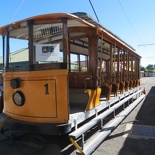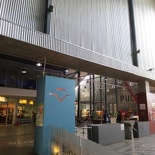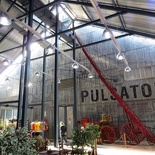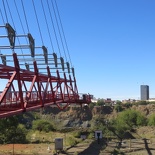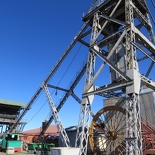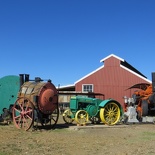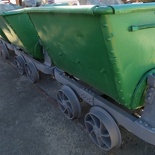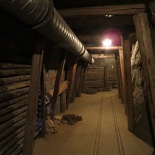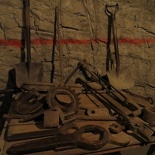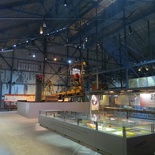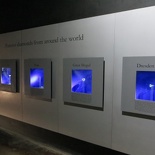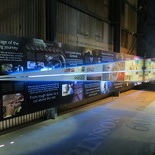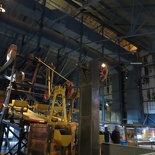The Big Hole is one of the few disused diamond mining sites littered all around Africa. It was set up by the De beers diamond company the diamond rush almost 150 years ago, where intense underground excavations subsequently took place, leaving pretty much a large gaping hole in the ground which the attraction and museum is presently named after. Located at the heart of the African Kimberly city, the city itself grew and flourished from the mine itself, where it served the hundreds of workers who lived on the mines. This mine closed down in 1914 and turned into an attraction from 2005.
You enter the attraction straight into the remnants of a gold rush town, completely preserved as it was 1872. The town is used to support a population of diggers, which grew to about 50,000 at it’s peak. The preserved town comes complete with its own town hall, saloon, barber and even an undertaker store, as bizarre as it sounds. A disused electrical tram line which served as the town’s main transport artery runs through the town via laid ground tracks.
Going past the old town brings you into the museum’s main visitor center, home to the museum restraint, ticketing counters and exhibition halls, this building used to serve as a large storage warehouse, housing all the mining equipment and hoisting gear situated next to the mining hole.
A suspended red linkway bridge connected to the visitor center allows for a bird eye’s view over the big hole itself, it is a one-way cantilevered observation bridge bringing you right over the edge of the big hole, which is assumed to be structurally unstable on the edges. The hole was claimed to be one of the largest manmade excavations, entirely by pick and shovel with some 22.5M tons of earth removed yeilding over 14.5 M carats of diamonds. Today the mine is completely disused, with the mining caverns all sealed with the quarry hole now turned into a natural lake. You can also see the city of Kimberly in the distant background.
180 degree panorama of the Big hole from the Bridge
From the visitor center you follow a linear route into a movie theater, with screenings introducing you to the life on the diamond mines when it was active and the mining processes in place deep in the subterranean tunnels. Much of the mining activity happens underground as miners branch out from a main mining shaft, also serving as an auxiliary ingress and out shafts to move miners between the various mining floors as well as deliver mined contents out of the tunnel via mine carts on track back up to the surface via deep industrial elevators.
A guide will then subsequently bring you through a mock-up of a typical underground tunnel. Showing you the tools and tricks of trade, including the use of explosives to blast miners through the rocks, you will also get a chance to experience how tight and claustrophobic the tunnels can be at times as well as the challenges of maintain good air quality for personnel deep underground, which can go up to 240m deep.
Past the tunnels, your guide leads you out into the subsequent exhibition area back into the museum main visitor center building. The vast warehouse complex now houses several items of interest, including the jewel box containing diamonds mined right here at Kimberly. The exhibition and displays aims to educate visitors about the geology of diamonds, including how they were formed to how these previous stones are perceived of objects of great value and used all around the world from jewelry to clothing. The sieving machines and display also teaches on how the mined dirt are sorted out to reveal the diamonds within. This section is probably where you might spend most of your time too, especially for ladies who will find great interest over the myriad of diamond displayed.
Exiting the exhibit halls brings you back out into the visitor center lobby. A trip to the De beers big hole will be good for half a day- 3 hours tops at most where you can spend the remainder of your day at Kimberly city itself.
View more photos of the Big hole at Kimberly here.

